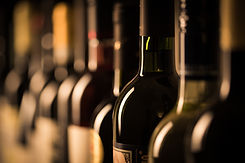
The Bhutan Wine Company
is developing the fine wine industry in the Himalayan Kingdom of Bhutan to celebrate the beauty and magic of the country’s land, people, and culture by creating fine wine products destined for the global markets.
Although measuring only roughly 14,000 square miles
(slightly smaller than Switzerland), Bhutan is a remarkable place.
Called “Druk Yul” or “Land of the Thunder Dragon”, for the mythical legend of dragons breathing fire when thunderstorms would whip down from the tops of the Himalayan peaks, this stunningly beautiful country is punctuated with mountain peaks, deep valleys, rivers and lakes. Situated in the eastern Himalayas, between China and India, Bhutan rises in just a few hundred miles from steamy jungles to some of the world’s highest peaks. No roads led outside of the Kingdom until the 1960s, and access by air became possible only a few decades ago. This isolation throughout its history has provided refuge for its people to live and practice their rich cultural traditions freely.

With approximately 95 percent of its people practicing traditional farming, Bhutan is a truly agrarian society where people live close to the land that sustains them. Their eco-friendly practices are in part responsible for Bhutan’s designation as a biodiversity visionary. This designation recognizes the country’s remarkably healthy diversity of life, and special approach to life in the 21st Century. The Kingdom has an extraordinarily strong history of agricultural success. Not only is the Kingdom the only carbon-negative country in the world, they are on track to become the world’s first completely organic country. This history of agricultural success is what lays the foundation for our belief that the Kingdom is capable of producing some of the world’s finest wines, and our vision is to capture the essence of Bhutan in a bottle.
The BWC is working with strategic partners within the Kingdom to make this a reality. We are collaborating to leverage the country’s unique terroir across many diverse macroclimates, strong history of agricultural success, and impressive global reputation as environmental pioneers (and the only carbon-negative country in the world).
Specifically, the BWC’s vision is to assist in research and development to evaluate potential wine growing regions within the country, develop corporate-owned vineyards, invest in capital equipment and assist local farmers with the conversion of their lands to vineyards, build wine making facilities to be shared across growers and producers, and offer a sales and marketing channel to sell Bhutanese wine to the global market.
Our short term goals are to continue to develop and monitor our existing vineyards, while further developing sites with additional unplanted acreage and new vineyard sites each year. We continue to strengthen our global supply chains and further establish the brand.
Our intent is to build a legacy industry for our grandchildren and the future grandchildren of the Kingdom.
Wine in Bhutan
Bhutan uniquely represents one of the best wine development opportunities in the world for a number of reasons.

Great Potential Terroir
The Kingdom possesses a unique terroir across many diverse microclimates, that we believe provides the potential for growing high quality wine grapes. Sloped farmland is the norm, and the soil shows the high iron content similar to that found in places like Coonawarra and La Mancha. The sun exposure is high, similar to that found in famous wine regions Chianti and Rioja. Altitude in the Kingdom ranges from 1,000 feet to 24,000 feet, providing access to a wide range of growing sites, including those similar to the high altitude sites in Mendoza which produces some of the world’s best Malbec.

Opportunity to Start from Scratch
The Kingdom has not had any vineyards planted prior to April 2019 (see 'The Grapes and Vineyards' page) and produces no wine locally. There are not industry codifications or regulatory requirements, or historical structural and branding issues often seen in many developed wine producing regions. We have the opportunity to craft and develop the entire industry within the Kingdom, in a way that leverages current leading practices for grape growing, winemaking, and sales and marketing.

A World-renowned Reputation
The Kingdom itself is globally recognized for its leading-edge social policies, from its development of the Gross National Happiness metric, its focus on environmental sustainability and becoming the first carbon negative county in the world, and its natural beauty which attracts affluent tourists from all over the world. Additionally, the predominantly Buddhist country is known for its peaceful and loving people, and tranquil spirit. The Kingdom of Bhutan has immediate awareness and prestige as a place to admire, respect, and learn more about. This allows us to celebrate the country’s rarity and magic in the production of Bhutanese fine wine, where the sense of place is a dominant factor in choosing a wine.

Collaborative Environment
The BWC was founded on triple bottom line principles and is deeply committed to social and environmental aspirations. Our goal is to produce a high-end product for the export markets, which will continue to showcase the Kingdom to the global community. Through doing so, we intend to provide jobs for many citizens, and more importantly create opportunities for citizens to develop support businesses – from growing their own grapes which we can process and market, to the use of local craftsmen and artisans to create support products, and a host of ancillary opportunities in areas like trucking or maintenance. Also, our focus on organic grape growing directly aligns with the Kingdom’s environmental goals and objectives.
